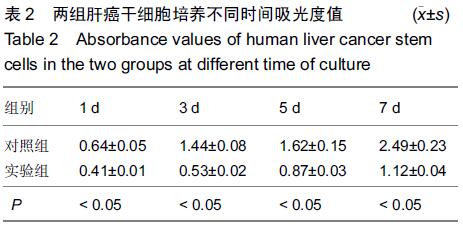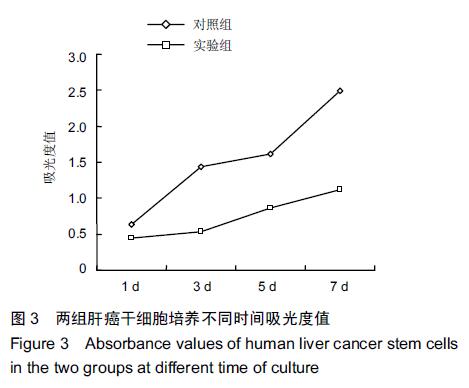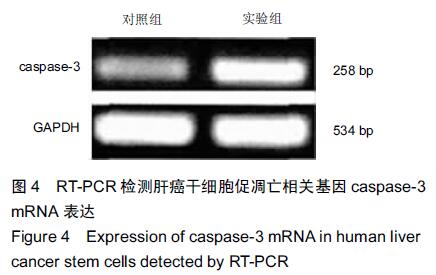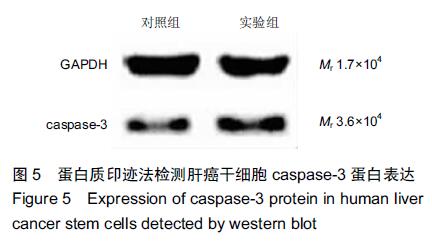| [1] 秦建民,黄涛,盛霞,等.索拉菲尼联合树突状细胞与细胞因子诱导杀伤细胞抗肝细胞癌生长作用的实验研究[C]. 2014年肝胆胰外科张家港学术论坛暨第26届全国肝胆胰外科学术经验交流会论文集,2014:65-71. [2] 韩照予,周宜强,孙君,等.介入治疗联合DC+CIK细胞疗法治疗肝癌初步观察[C].2009年国际中医药肿瘤大会论文集,2009:452-454. [3] 王广伟,顾元龙,刘敏丰,等.树突状细胞(DC)联合CIK对原发性肝癌术后患者细胞因子的影响[J].中国保健营养:中旬刊,2012,9:23-24. [4] 杨茂,郭志,司同国,等.动脉化疗栓塞联合CIK细胞过继免疫治疗对中晚期肝癌患者免疫功能的影响[J].介入放射学杂志,2011,20(2):116-119. [5] Zhu R, Mancini-Bourgine M, Zhang XM, et al. Plasmid vector-linked maturation of natural killer (NK) cells is coupled to antigen-dependent NK cell activation during DNA-based immunization in mice. J Virol. 2011;85(19): 10201-10212. [6] Smyth MJ, Cretney E, Takeda K, et al. Tumor necrosis factor-related apoptosis-inducing ligand (TRAIL) contributes to interferon gamma-dependent natural killer cell protection from tumor metastasis. J Exp Med. 2001;193(6):661-670. [7] 陈健,桂永忠,敬新蓉,等.肝动脉化疗栓塞联合高强度聚焦超声、CIK细胞治疗原发性肝癌的疗效分析[J].临床超声医学杂志,2009,11(10):656-660. [8] 杨晓亚,高裕华,刘素蕊,等.肝癌特异性靶标致敏DC诱导CIK细胞对肝癌HuH-7细胞及移植瘤的抑制[J].中国肿瘤生物治疗杂志,2014,21(5):505-509. [9] 秦建民,黄涛,盛霞,等.索拉非尼联合树突状细胞与细胞因子诱导的杀伤细胞对肝癌生长与侵袭转移的作用[J].中华消化外科杂志,2014,13(5):364-368. [10] 陈晚华,刘辉,王延春,等.表达人IL-21的细胞因子诱导的杀伤细胞对裸鼠肝癌的治疗研究[J].第二军医大学学报, 2012,33(10):1045-1050. [11] Muench MO, Humeau L, Paek B, et al. Differential effects of interleukin-3, interleukin-7, interleukin 15, and granulocyte-macrophage colony-stimulating factor in the generation of natural killer and B cells from primitive human fetal liver progenitors. Exp Hematol. 2000;28(8):961-973. [12] 张嵩,张尚权,白春学,等.树突状细胞与同源细胞因子诱导的杀伤细胞共培养细胞在肿瘤免疫治疗中的作用[J].中华结核和呼吸杂志,2004,27(5):315-319. [13] Huang J, Li C, Wang Y, et al. Cytokine-induced killer (CIK) cells bound with anti-CD3/anti-CD133 bispecific antibodies target CD133(high) cancer stem cells in vitro and in vivo. Clin Immunol. 2013;149(1):156-168. [14] 蒋淑莲,文剑,杜建霞,等.华蟾素增强细胞因子诱导的杀伤细胞对肝癌细胞的杀伤活性[J].中国生化药物杂志, 2007, 28(3):164-166. [15] Yuanying Y, Lizhi N, Feng M, et al. Therapeutic outcomes of combining cryotherapy, chemotherapy and DC-CIK immunotherapy in the treatment of metastatic non-small cell lung cancer. Cryobiology. 2013;67(2):235-240. [16] 隋承光,李卿,蒋涛,等.CIK细胞联合表柔比星对肝癌的体内外杀伤作用研究[J].中国现代医学杂志,2009,19(21): 3220-3222,3226. [17] 喻晓,孙振纲.DC 和 CIK 免疫细胞及其在原发性肝癌治疗中的应用进展[J].长江大学学报,2015,12(2):82-84. [18] 张丹,何剪太.DC-CIK细胞协同索拉菲尼对肝癌细胞的杀伤作用[J].细胞与分子免疫学杂志,2011,27(6):664-667. [19] 李卿,王新利,隋天博,等.索拉菲尼联合细胞因子活化的杀伤细胞对肝癌的杀伤效应研究[J].中国现代医学杂志, 2009,19(19):2885-2888. [20] 史跃,罗中华,孙立军,等.肝动脉灌注细胞因子诱导杀伤细胞联合超液化碘油栓塞介入治疗原发性肝癌[J].实用放射学杂志,2008,24(2):231-233,282. [21] 秦建民,黄涛,盛霞,等.索拉菲尼联合树突状细胞与细胞因子诱导杀伤细胞抗肝细胞癌生长作用的实验研究[J].肝胆外科杂志,2014,22(2):148-151. [22] 严舒,范德庆.微波消融和自体细胞因子诱导的杀伤细胞治疗肝癌的现状与展望[J].检验医学与临床,2014,11(2): 251-253. [23] 王悦华,刘岩青.源于肝癌患者细胞因子诱导杀伤细胞的生物学特性及抗癌活性[J].中国现代医学杂志,2011, 21(1):19-22. [24] Rosenberg SA, Lotze MT, Muul LM, et al. Observations on the systemic administration of autologous lymphokine-activated killer cells and recombinant interleukin-2 to patients with metastatic cancer. N Engl J Med. 1985;313(23):1485-1492. [25] Grimm EA, Mazumder A, Zhang HZ, et al. Lymphokine-activated killer cell phenomenon. Lysis of natural killer-resistant fresh solid tumor cells by interleukin 2-activated autologous human peripheral blood lymphocytes. J Exp Med. 1982;155(6):1823-1841. [26] Gütgemann S, Frank S, Strehl J, et al. Cytokine-induced killer cells are type II natural killer T cells. Ger Med Sci. 2007;5:Doc07. [27] 赵明,吴沛宏,曾益新,等.经肝动脉栓塞化疗序贯联合射频消融和细胞因子诱导的杀伤细胞治疗肝细胞癌的随机研究[J].中华医学杂志,2006,86(26):1823-1828. [28] 鲍锋,盛春华,杨光. DC-CIK 细胞治疗中晚期恶性肿瘤 531 例分析[J].中国免疫学杂志,2011,27(4):360-362. [29] 杨涛,邵江河,项颖,等. DC-CIK 细胞联合治疗 110 例晚期恶性实体瘤临床观察[J].肿瘤,2010,30(8):700-705. [30] 施明,张冰,汤紫荣,等.肝癌患者自体细胞因子诱导杀伤细胞治疗后免疫活性细胞的检测及其临床意义[J].中华医学杂志,2003,83(23):2049-2053. [31] Marin V, Pizzitola I, Agostoni V, et al. Cytokine-induced killer cells for cell therapy of acute myeloid leukemia: improvement of their immune activity by expression of CD33-specific chimeric receptors. Haematologica. 2010;95(12):2144-2152. [32] Motamedi M, Arab S, Moazzeni SM, et al. Improvement of a dendritic cell-based therapeutic cancer vaccine with components of Toxoplasma gondii. Clin Vaccine Immunol. 2009;16(10):1393-1398. [33] Lin CC, Yu YL, Shih CC, et al. A novel adjuvant Ling Zhi-8 enhances the efficacy of DNA cancer vaccine by activating dendritic cells. Cancer Immunol Immunother. 2011;60(7):1019-1027. [34] 周启明,吴沛宏,赵明,等.原发性肝癌经综合微创治疗后联合细胞因子诱导杀伤细胞灌注的近期疗效观察[J].癌症, 2006,25(11):1414-1418. [35] 李卿,王新利,王杨,等.DC-CIK共培养细胞联合索拉菲尼对肝癌细胞体内外的杀伤效应[J].中国肿瘤生物治疗杂志,2010,17(1):46-50. [36] Xie L, Pang R, Jin Y, et al. Effects of hepatic artery chemotherapeutic embolization combined with perfusing LAK cells into hepatic artery after radical operation of liver cancer. Zhonghua Gan Zang Bing Za Zhi. 2000;8(3):142-143. [37] Li H, Yu JP, Cao S, et al. CD4 +CD25 + regulatory T cells decreased the antitumor activity of cytokine-induced killer (CIK) cells of lung cancer patients. J Clin Immunol. 2007;27(3):317-326. [38] Ren J, Di L, Song G, et al. Selections of appropriate regimen of high-dose chemotherapy combined with adoptive cellular therapy with dendritic and cytokine-induced killer cells improved progression-free and overall survival in patients with metastatic breast cancer: reargument of such contentious therapeutic preferences.Clin Transl Oncol. 2013;15(10):780-788. [39] 王颖,吴德平,明平静,等.DC与CIK共培养细胞体外抗肝癌细胞活性研究[J].中华微生物学和免疫学杂志,2014, 34(1):42-46. [40] 施明,姚莉,王福生,等.人源细胞因子诱导的杀伤细胞联合化疗药物对裸鼠肝癌移植瘤的抑制作用[J].中华肿瘤杂志, 2004,26(8):465-468. |
.jpg)






.jpg)
.jpg)